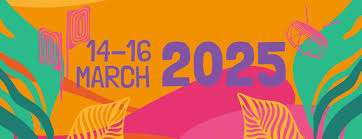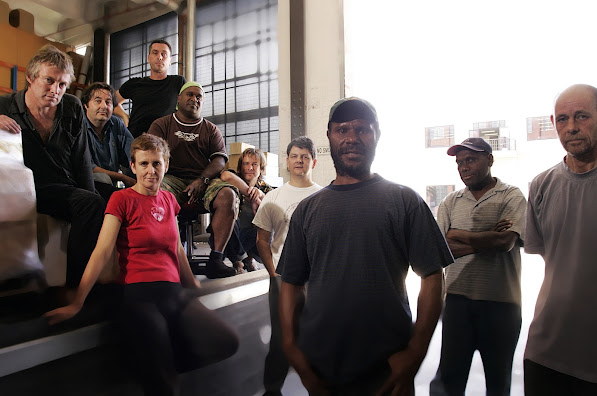 |
| Photo: Karen Inderbitzen-Waller & Delphine Avril Planqueel |
In a powerful and stirring collaboration, The Veils, led by the enigmatic Finn Andrews, join forces with NZTrio—Amalia Hall (violin), Ashley Brown (cello), and Somi Kim (piano).
Known for their haunting melodies, poetic lyricism, and brooding intensity, The Veils have carved out a distinctive place in the alternative music scene. NZTrio, smashing preconceptions of classical music being stuffy or intimidating are celebrated for their exceptional artistry and captivating repertoire.
The Veils
Finn Andrews is London born but spent his teenage years living with his mother and sister in his grandmother's house in Auckland.
Largely uninterested in school, he played in many bands (one of which played at a folk club on Mt Victoria, Devonport). It was then that he started to write material for the band that would later become The Veils' debut album 'The Runaway Found'.
At 16yrs, he sent a set of demos to record companies overseas and The Veils were signed almost immediately to Blanco y Negro, an indie/major hybrid imprint led by Rough Trade's boss Geoff Travis.
On 19 August 2002 the band released a promo only single "Death & Co.". Three months later they released 'More Heat Than Light' and then "The Leavers Dance" in February, the following year.
With contractual disparities and artistic differences kicking off between the head of Warner and Geoff Travis the album was delayed. The Blanco Y Negro label was eventually disbanded. The dispute turned into a nasty court battle. The Veils eventually regained ownership of their master recordings from Warner Music and by mid-2003 Geoff Travis had signed them to Rough Trade Records.
They recorded four more songs with producer Bernard Butler (ex-Suede), and the band finally released its first Rough Trade single, "Guiding Light" in July 2003.
Single releases of "Lavinia" (November 2003) and "The Wild Son" (January 2004) led to 'The Runaway Found' finally hitting the shelves in February 2004 and receiving rapturously reception by the critics.
But by the time of its release Andrews was unhappy with the direction the band had taken and, allegedly following altercations between him and other members, The band's first incarnation split mid-2004, just 2 months after their debut release.
Andrews left the UK early 2005 and toured solo around America and Japan, eventually returning home to Aoteroa. He spent the summer working with high-school friends Liam Gerrard (keyboards) and Sophia Burn (bass) and then the trio returned to London they were joined by Dan Raishbrook (guitar) and Henning Dietz (drums).
They recorded with producer Nick Launay in LA in early 2006, with the resulting album being the well regarded classic 'Nux Vomica' whch had a darker, heavier, more complex sound and augmented by string arrangements by ex Lounge Lizard Jane Scarpantoni. Many of the songs reminded of Johnny Cash and Nick Cave, goth and Americana combined. The singles were 'Not Yet' and 'Jesus for the Jugular' follow by "Advice for Young Mothers to Be" (September 2006) and "One Night on Earth" (April 2007).
The band followed up with another 4 albums 'Sun Gangs' (2009), 'Time Stays', 'We Go' (2013), 'Total Depravity' (2016), '…And Out Of The Void Came Love' (2023) and two additional EP’s, 'The Troubles of the Brain' (2011) and 'The Abbey Road EP' (2013).
Finn’s debut solo album 'One Piece At A Time' was released in 2019.
The Veils have toured consistently throughout their twenty year history and garnered a formidable reputation as one of the world’s greatest live bands.
They have also been praised by film directors Paolo Sorrentino, Tim Burton and David Lynch who have all used their music on their soundtracks.
Together, they will bring a fresh dimension to The Veils back catalogue alongside a focus on tracks from the beautiful forthcoming album 'Asphodels', set for a 2025 release. This will be their seventh studio album, recorded live to tape over five days at Roundhead Studios, Auckland.
WOMAD audiences will get to sample material from their back catalogue alongside the new works, including their latest single, 'The Ladder', supported by the NZ Trio (who the collaborated with Finn Andrews in 2021).
Somi Kim (piano), Ashley Brown (cello), Amalia Hall (violin) Photo: NZTrio
From their website: "Described as a “national treasure” and “New Zealand’s most indispensable ensemble” (William Dart, NZ Herald), NZTrio is renowned for its eclectic repertoire, outstanding talent and warm kiwi stage presence. Any preconceptions of classical music being stuffy or intimidating are smashed by edgy repertoire, venue ambience, and post-concert manaakitanga. Bringing together three incredibly accomplished artists: Amalia Hall (violin), Ashley Brown (cello) and Somi Kim (piano), every NZTrio performance powerfully reaffirms the importance and cathartic nature of a live musical experience in today’s digital world. Expect to be affected."
Their list of collabs is astounding with many projects spanning the spectrum of contemporary pacific dance (Pacific Dance NZ, 2022-2025), contemporary dance (BalletCollective Aotearoa, 2021; New Zealand Dance Co., 2012/13), visual arts (Simon Ingram 2021/2022), taonga puoro (Horomona Horo, 2022/2019, Forest & Bird / PACT, 2022-2023), contemporary folk (Nadia Reid, 2022), alternative/indie (Finn Andrews, 2021), animated film (David Downes, 2009), theatre (Massive Co., 2013), voice (Simon O’Neill, 2016) as well as cross-cultural music with masters of Chinese guzheng and Cambodian traditional instruments."






















.jpg)




.JPG)






